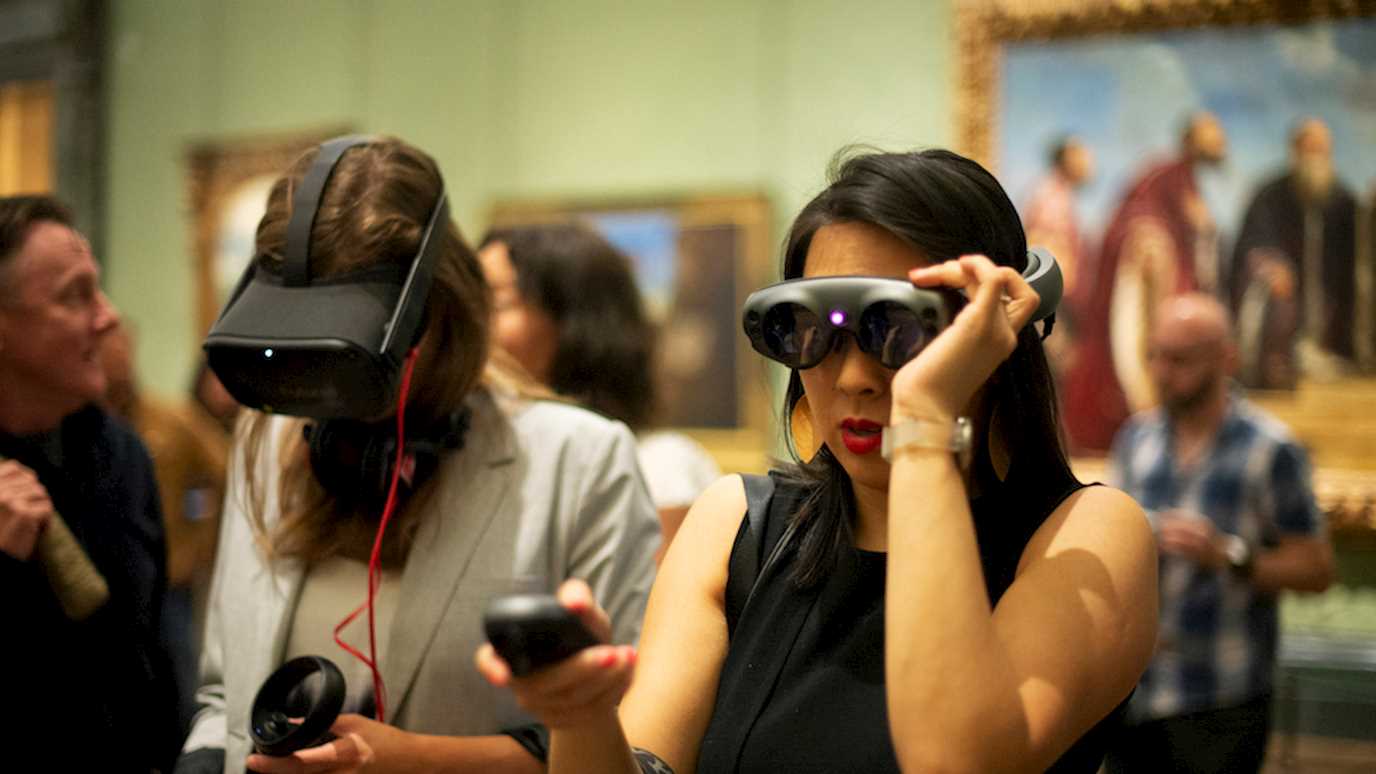The UK’s first comprehensive report on skills for immersive experience production has outlined a significant skills gap with 65% of companies identifying a lack of skills as a significant barrier to their individual growth as a business. Nearly all (97%) of the companies surveyed in the report felt that skills were missing in this sub-sector which is expected to add £62.5 billion to the UK economy and enhance over 400,000 jobs by 2030. Immersive experience production involves creating experiences using virtual (VR), augmented (AR) and mixed reality (MR) technologies.

The Skills for Immersive Creation Experience: Barriers to growth in the UK Immersive Economy Report is published by StoryFutures Academy which is the UK’s National Centre for Immersive Storytelling jointly run by the National Film and Television School (NFTS) and Royal Holloway, University of London.
The report was conducted in collaboration with Immerse UK and the UK’s leading screen industries trade bodies, Pact, UKIE, British Screen Forum and UK Screen Alliance, drawing on data from over 100 companies, including interviews with 25 leading sector figures. It sets out where the gaps in skills lie, the challenges these present for business growth and makes a series of innovative recommendations to help create the pipeline of talent needed to ensure the UK can retain its status as a world-leader in AR, VR and MR.
In this fast-growing sector, experience is in short supply and there is a need to both rapidly translate the UK’s world leading talents in film, games, theatre and television to this new medium as well as develop a multi-skilled pipeline across professional, tertiary and secondary education. In particular, there is an urgent call for cross-fertilisation between the arts and traditional sciences – to better integrate STEM (Science Technology Engineering and Mathematics) disciplines with the Arts (STEAM) Science, Technology, Engineering, Arts, and Mathematics.
Key findings from the report include:
- Critical shortages are leading to a fight for talent. 80% identified significant barriers to growth caused by a lack of technical skills, whist over half of companies reported gaps in creative and management roles, such as producers and writers.
- There is a crucial lack of experience: 73% of those working in immersive have worked on less than five projects. The pace of change and emergent nature of business models, which places a reliance on freelancers, makes it difficult to predict, scope and build up experience: a lack of experience is particularly acute in senior leadership roles.
- Expertise in the use of Real Time Game Engines was identified as the single most important skill for successful immersive production, yet it is also considered the biggest skills gap. The games industry stood out as suffering the biggest raids and talent losses.
- The skills pipeline is a major concern: 44% of respondents were worried about the lack of graduates with relevant skills to keep up with demand.
Sir Peter Bazalgette, author of the Independent Review of the Creative Industries and non-executive board member of UK Research & Innovation, comments, “The British have a demonstrable genius for content. Our worldwide reputation is for compelling video games, music, TV and film, radio and podcasts. We don’t make much of the globe’s hardware, but we’re the creators of much of the software that runs on it. So, when a new category emerges we should make absolutely sure we lead it. ‘Immersive’ is indeed a novel category and I commend this new report. It pinpoints what UK plc needs to do to make sure we’re developing the necessary skills to dominate the immersive market. If we succeed there will be a considerable reward, both economic and cultural.”
Professor James Bennett, Co-director of StoryFutures Academy, from Royal Holloway, says: “We have seen rapid and exciting growth in the immersive industry and the UK is fast-establishing itself as a world leader in creating amazing new experiences for audiences. But the skills pipeline is struggling to keep pace. This report sets out the importance of ‘fused’ skills and job-roles that bring together creative and technical skills as well as the opportunity to translate our global reputation in screen industries into this exciting new space. There is a nearly unanimous call from the industry to rapidly upskill our talented creatives and get to grips with some of the amazing new technologies at our disposal.”
The Skills for Immersive Experience Creation: Barriers to growth in the UK Immersive Economy Report by Professor James Bennett and Amanda Murphy, was launched by Sir Peter Bazalgette on 28 January 2020. The launch event at Digital Catapult in London involved a panel of industry experts discussing the report’s findings and recommendations, followed by a masterclass in immersive production, from ILMx LAB's Mohen Leo.
























